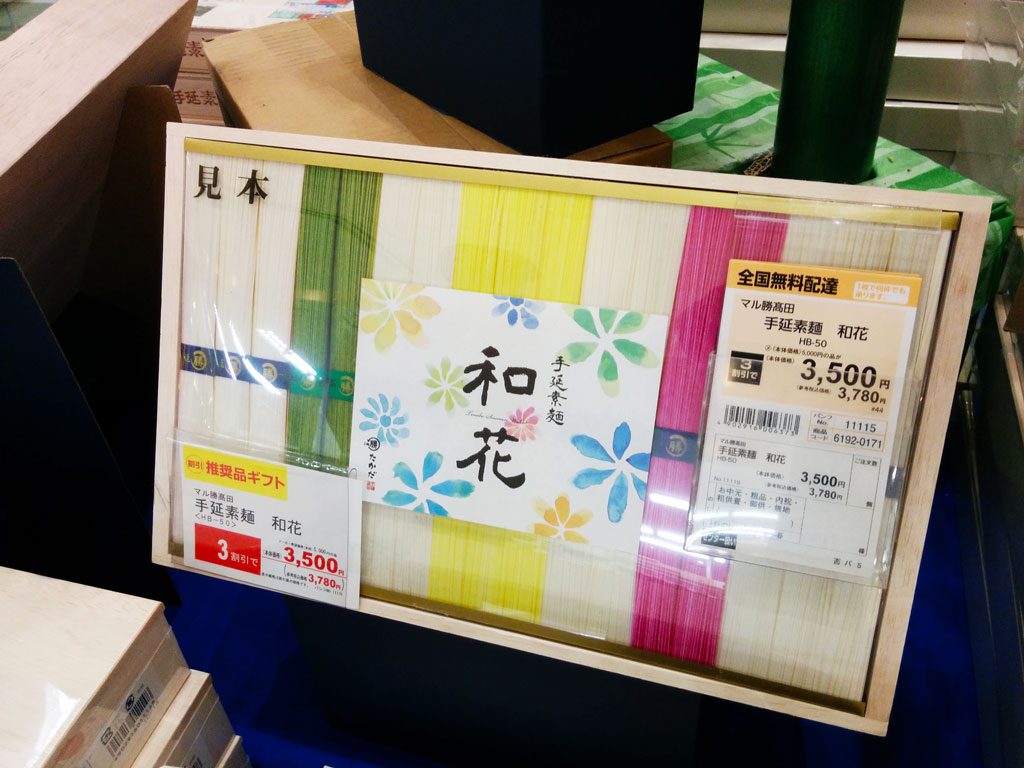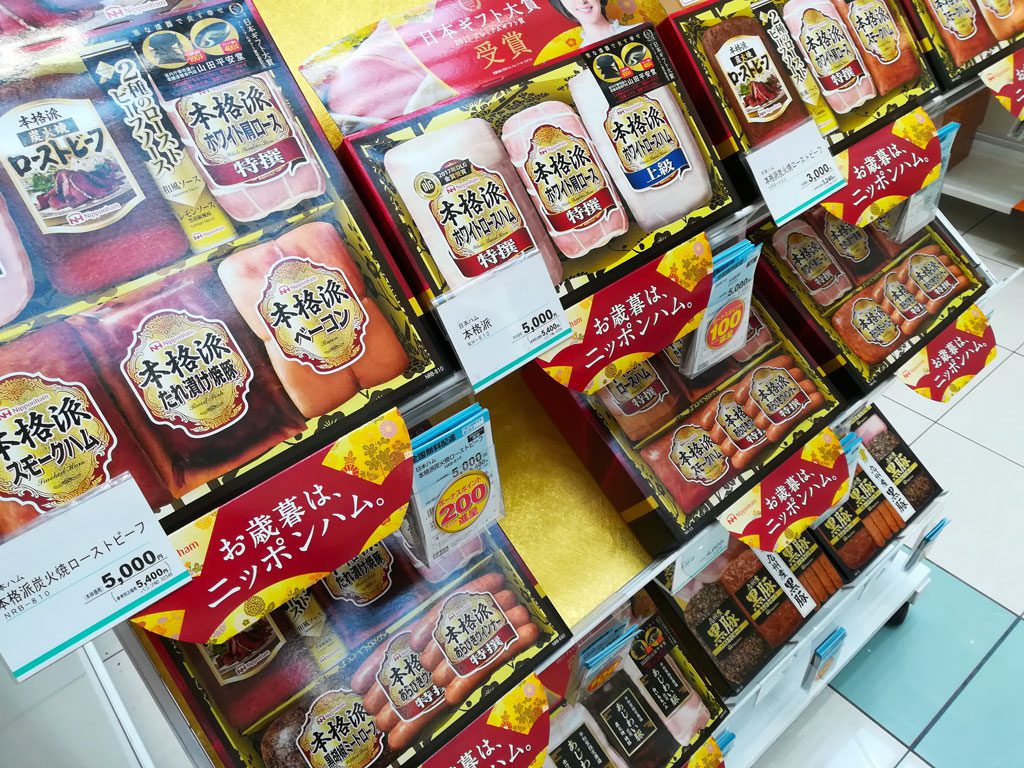Dec. 4, 2017
In Japan we have a custom to give gifts to people in the summer and winter. The summer gift is called ochugen, and the winter gift is oseibo. They are given to business acquaintances, superiors, Buddhist monks, relatives, friends and so on. I think this is because Japanese people value politeness to live in harmony with one another. By giving gifts every year, you can express gratitude and respect to the recipients, and this is an important thing in Japanese society.
Naturally, department stores display a wide variety of gifts before each season. Many people go there to choose their gifts by looking, though these days more and more people are purchasing them online. Generally speaking, oseibo are more expensive and given to more people than ochugen. This is because the season of oseibo comes at the end of the year, and oseibo giving is often seen as a year-end greeting that means a lot for Japanese.


Usually oseibo are 3,000-5,000 yen, but there are a few people who spend about 10,000 yen on oseibo for those who always support them a lot. However, you must not choose too expensive gifts because people don’t want to cause you trouble. Moreover, if you are much younger than the recipient, giving too expensive gifts can be regarded as impolite. How difficult!
What is more worrying is that there is no rule that you need to give these gifts to certain people. On the contrary, there are some companies that don’t allow gift giving. Whether you give the gifts to people depends on your circumstances, and you must think on your own. Many people agonize over ochugen and oseibo every year, so if you live in Japan, maybe it will make you feel uneasy at first. However, it is a good thing to worry about how to behave in the society like this, because by thinking this or that about those around you, you can be a great person who shows consideration for them, and you can create good relationships with them in the future, too.
By Meg Konishi (Find Your Japan)
